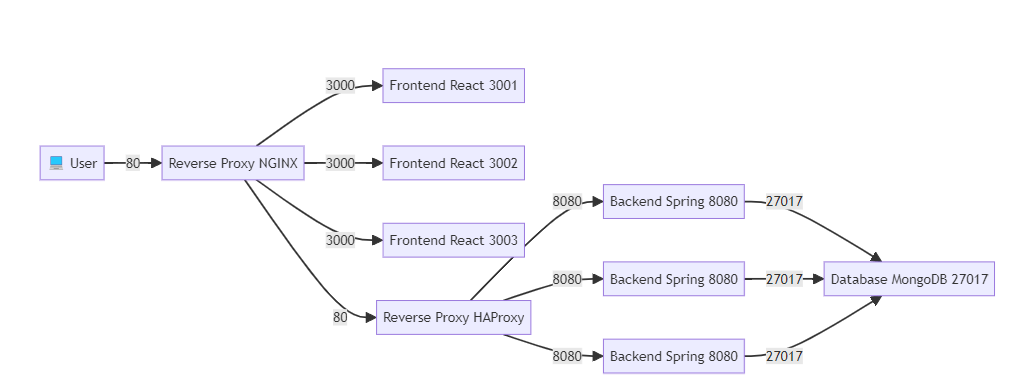3-Tier Architecture Deployment with Docker: Frontend, Backend, and Database_Image Optimization (3)
 BRYNN
BRYNNIn this post, we'll cover the setup of the frontend, backend, and database services, focusing on creating efficient Docker images.
Traffic Flow

Frontend (Next.js)
Dockerfile
FROM node:18-alpine as builder
WORKDIR /app
COPY package.json package-lock.json ./
RUN npm ci # Install dependencies.
COPY . .
RUN npm run build
FROM node:18-alpine as runner
WORKDIR /app
COPY --from=builder /app .
EXPOSE 3000
ENTRYPOINT ["npm", "start"]
Multi-Stage Build: Builds the app in the builder stage, copies only necessary files to the runner stage.
Base Image:
node:18-alpinefor a lightweight Node.js environment.Expose Port: Opens port
3000for web traffic.
Backend (Spring)
Initial Dockerfile
FROM openjdk:17-oracle
COPY ./build/libs/app.jar app.jar
ENTRYPOINT ["java", "-jar", "-Xmx512M", "-Dspring.profiles.active=main", "app.jar"]
Base Image:
openjdk:17-oraclefor Oracle JDK 17.Copy JAR: Copies the built JAR file into the image.
Entry Point: Runs the JAR with specific JVM options.
Optimized Dockerfile
# Build Stage
FROM gradle:8.7.0-jdk17 AS build
COPY --chown=gradle:gradle . /home/gradle/src
WORKDIR /home/gradle/src
RUN gradle build --no-daemon --stacktrace
# Final Stage
FROM openjdk:17-jdk-alpine
COPY --from=build /home/gradle/src/build/libs/*.jar app.jar
ENV TZ Asia/Seoul
CMD ["java", "-jar", "-Xmx512M", "-Dspring.profiles.active=main", "app.jar"]
Multi-Stage Build: Builds the app in the first stage, runs it in the second.
Base Image:
openjdk:17-jdk-alpinefor a lightweight JDK.Optimized for Size: Uses Alpine-based images to reduce size.
Database (MongoDB)
Dockerfile
FROM mongo:4
COPY init-mongo.js /docker-entrypoint-initdb.d/
init-mongo.js
db = db.getSiblingDB('appdb');
db.createCollection("collection1");
db.createCollection("collection2");
db.collection1.insertMany([
{ name: "example1", value: "data1" },
{ name: "example2", value: "data2" }
]);
db.collection2.insertMany([
{ name: "example3", value: "data3" },
{ name: "example4", value: "data4" }
]);
- MongoDB Initialization: Sets up the database, creates collections, and inserts sample data.
Next Steps
In the next post, we'll dive into monitoring the 3-tier architecture
Subscribe to my newsletter
Read articles from BRYNN directly inside your inbox. Subscribe to the newsletter, and don't miss out.
Written by